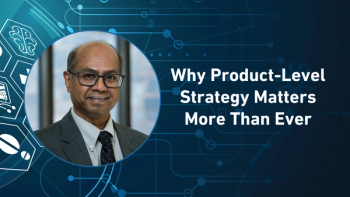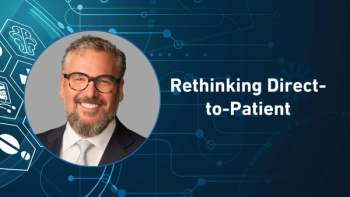
- Pharmaceutical Commerce - January/February 2011
Is There Life After the Lab?
Today’s uncertain work environment obliges you to manage your career and financial status to keep your options open
Is there life after the lab?
That’s a question that I’ve heard from clients over and over during the last half-dozen years or so. Many pharmaceutical executives have pondered that question and I’m sure scores more are pondering it today.
Oxford University’s Dr. Manuel Berdoy strived to answer that very question in his documentary, “The Laboratory Rat: A Natural History.” Dr. Berdoy conducted an experiment where he released 50 lab rats into the wild (actually a large outdoor enclosure) and tracked them for several months to see how well, if at all, they adapted to their new environment. Keep in mind that these rats had been born in a lab and have never even seen the sky. The same was true of their parents, grandparents and many generations before them.
[The videos Dr Berdoy filed during the experiment--which have won several awards--can be viewed at ratlife.org. The background to the experiment can be read in Nature.--ed. note]
What the researchers found was that after a very brief period of curiosity, the rats’ instincts took over. Before long, they began foraging for food, finding mates and creating a hierarchical system typical with rat colonies. In short, they were able to adapt very quickly to their new surroundings even after having been born and kept in captivity for their entire lives.
Today’s tumultuous pharmaceutical environment presents the challenging task of attempting to get a read on job security which can lead to periods of low productivity and stress. Such uncertainty makes it excruciatingly frustrating to show up to work every day wondering if your department is going to be the next one to receive the attention of headcounters in HR. A work environment cannot be healthy with people fearing for their jobs every day, especially working for a company where many people have spent the majority of their professional careers. This can be taxing on the nerves of the executive as well as the executive’s family.
Me, Inc.
Pharmaceutical executives are in a position today where they have two businesses to run. In addition to managing their careers, they must also manage “Me, Inc.”—their personal finances. For people in a position in limbo who haven’t begun to prepare, now is the time to start planning and thinking about what could lie ahead in the event of being released into the “wild.”
Being proactive can offer the greatest probability of success in moving forward with one’s career in today’s landscape. Whether the focus is on networking with industry colleagues or conquering the family budget, addressing the most unpleasant issues first, and getting them out of the way, can offer more confidence and a solid foundation from which to build. Do not wait until receiving the proverbial tap on the shoulder to start planning.
Even today, after many years working in financial services, I’m often amazed at how fast some people seem to land on their feet after leaving a company. What is it that makes these people so special? Is it skill, personality traits or just plain luck?
While all of these can play a role, they’re not the main reason for success. Most of the success comes from preparation. Preparation can include having an updated biography, networking with colleagues, customers, vendors and industry experts, as well as getting one’s financial affairs in order. For many pharmaceutical executives, the latter of the three tends to fall by the wayside and garners the least attention. But should it?
Your next occupation
Consider the following case study. Ralph was recently severed from his company as a result of a merger. At 61 years of age, Ralph was on severance at the time while Alice, his wife, was still working (in another industry). Ralph had pockets of accounts and funds scattered all about. He had a 401(k) account, a pension, vested and unvested company stock, stock options and several deferred compensation accounts with varying payout schemes. This was in addition to the after-tax savings that he and Alice had diligently accumulated over the years.
For the first time in his nearly 40-year career, Ralph found himself on the outside looking in. Alice, also 61, had been thinking about what life would be like when she retired, but she just didn’t know when that time would come. They weren’t even sure if Ralph could retire.
Fortunately for Ralph and Alice, they had done a very good job at saving over the years and never overextended themselves with their spending. As the layoff approached, Ralph and Alice spent several weekends reviewing their financial situation. Whether they used a financial planner like me or not, they studied their situation, considered their needs and desires going forward, and took some actions. When their analysis demonstrated that they had achieved a satisfactory level of financial independence, Alice went into work with a completely new attitude. No longer was she working because she had to; instead, she was working because she wanted to. And if she gets to a point where she no longer enjoys her work, she can walk away knowing that her decision is purely personal.
As for Ralph, he’s been doing a fair amount of consulting work for a startup company, which is looking to attract capital investments. He is not yet getting paid for his services. When the time comes that the venture does raise some capital, Ralph will be offered a nice salary and some stock in the entity. Recognizing that there was no need for additional cash flow to sustain their lifestyle, Ralph plans to use that knowledge as an opportunity to negotiate a compensation package that would include less cash and more stock.
If the venture goes bust, then Ralph and Alice will be no worse off. But if it takes off, then that’s a whole different story. This is a risk that they are comfortable taking because they had done their homework. Having been prepared, Ralph and Alice were in a better position to determine what their next steps were and took more control over that decision. The ability to recognize the risk and reward associated with each decision and consider its ramifications was something they did not take for granted.
While not every story as a happy ending like this one, there is a better likelihood of success with preparation. In today’s pharmaceutical industry climate people must always be prepared to go but ready to stay. While that’s in stark contrast to the pharmaceutical industry of yesterday, this undeniably represents the cold hard reality of today. The best approach is the proactive approach. Only preparation can make a potential separation bearable, if not altogether rewarding. Remember, there is life after the lab, although, unlike the Dr. Berdoy’s lab rats, people have time to prepare. PC
ABOUT THE AUTHOR
Michael Steiner is a Wealth Manager with RegentAtlantic Capital. He can be reached at 973 425-8420 ext. 214, or
Articles in this issue
almost 15 years ago
OTC and Retail Purchases Round out the View of Patient Behavioralmost 15 years ago
The Changing Face of Today's PAPsalmost 15 years ago
NCPDP Standards for Accurate Billing, Reimbursement and Accessalmost 15 years ago
Cadence Pharma Launches a 50-Year-Old Product: Acetaminophenalmost 15 years ago
Adverse Event Reporting: At the Front Lines of Drug Safetyalmost 15 years ago
IT Predictions for 2011 from IDC Health Insightsalmost 15 years ago
Catalent invests in new fast-dissolve technology for oral solidsNewsletter
Stay ahead in the life sciences industry with Pharmaceutical Commerce, the latest news, trends, and strategies in drug distribution, commercialization, and market access.




